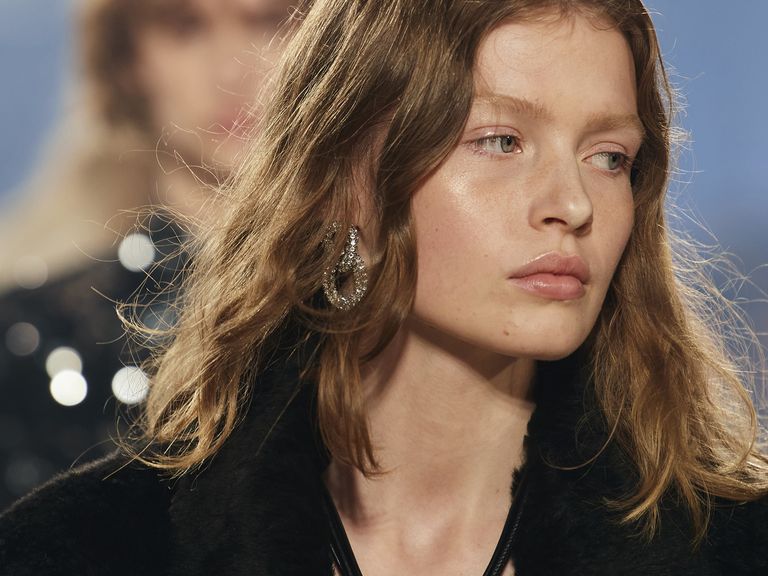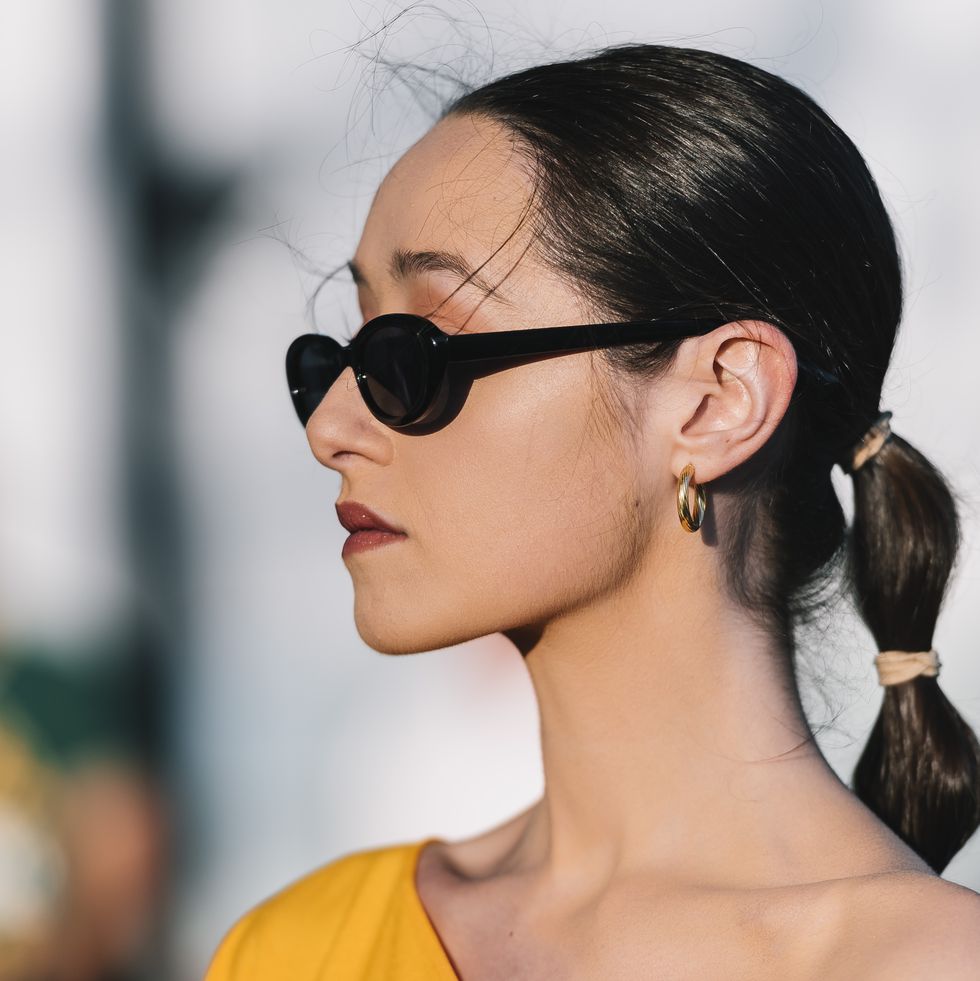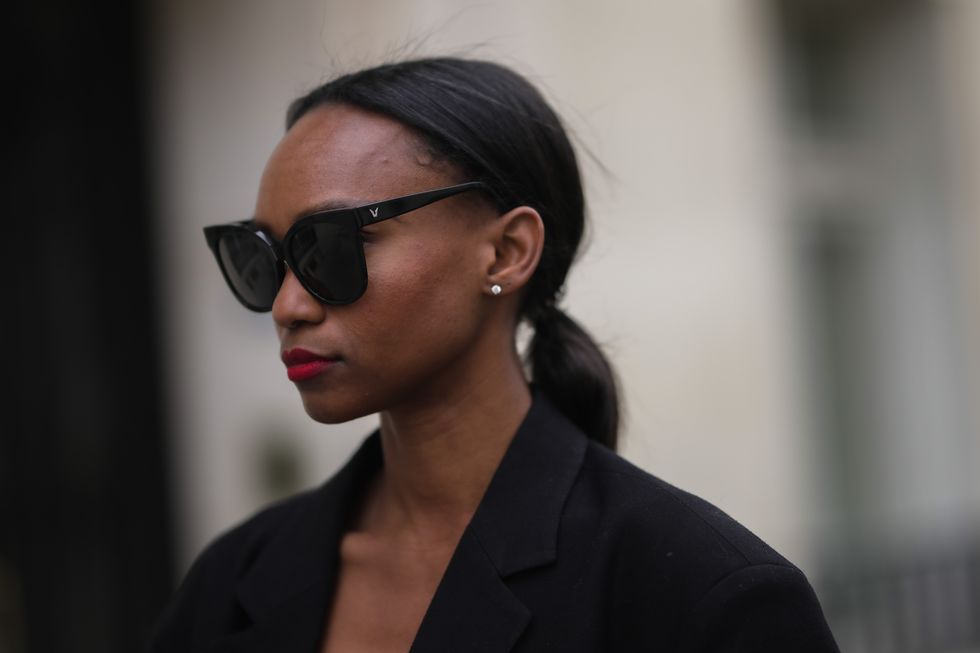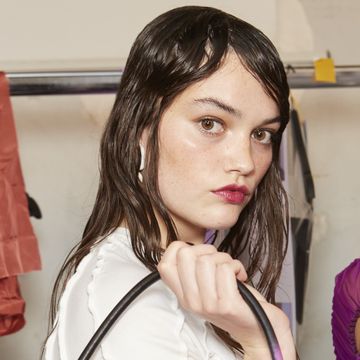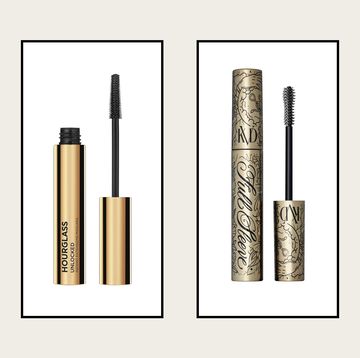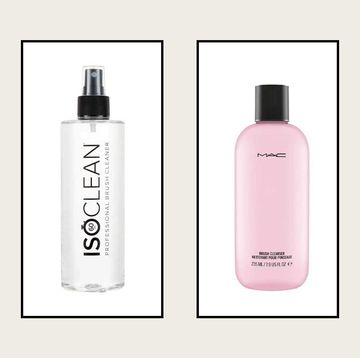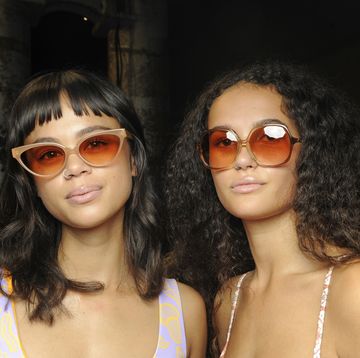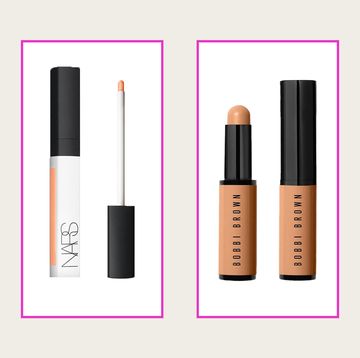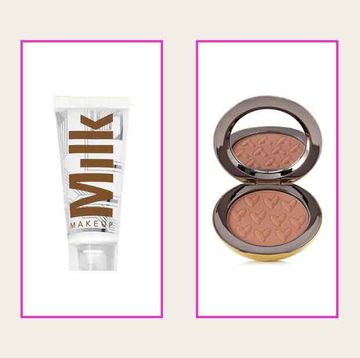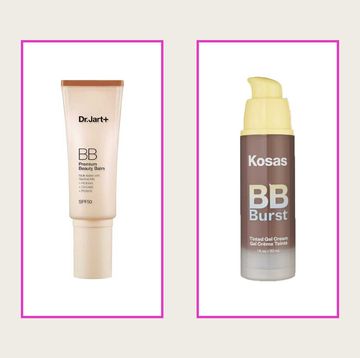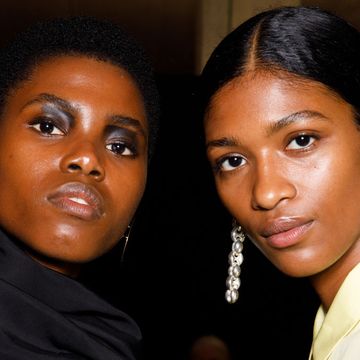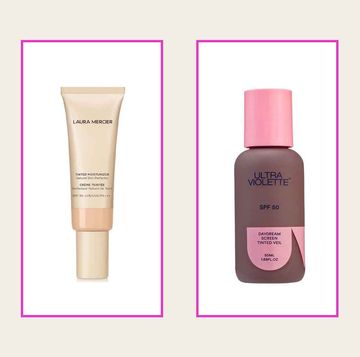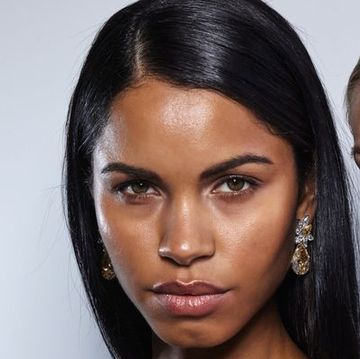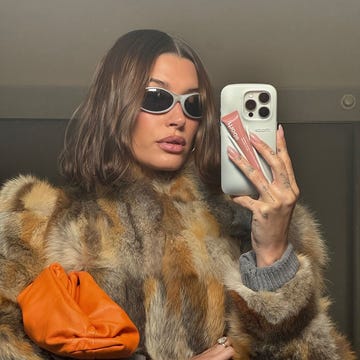When I moved to Paris two years ago, it dawned on me extremely quickly that, by French standards, I was wearing far too much make-up.
It’s a truth universally acknowledged that French women prefer to adopt a more understated beauty look. The philosophy being that one shouldn’t have to embellish or hide one’s real face. To be sophisticated, elegant, and, above all, natural, is the epitome of Frenchness – though a seductive smudge of red lipstick is, of course, permissible.
Having landed in Paris, I came to realise I had internalised some unhealthy ideas about beauty. It’s not a secret that many British girls and women feel pressure to generously apply make-up, or even radically change the way they look (the numbers of those undergoing surgery, injectables or ‘tweakments’ has only increased in the UK in recent years). The most obvious stereotype being the made-up 'Essex' look and increasingly the cyborgian ‘Instagram face’ noted by Jia Tolentino. In contrast, French women are more likely to bare their real faces ('warts' and all). Such wariness towards artificiality is reflected by the French government’s proposed law to even prosecute influencers who promote cosmetic surgery, filtered or retouched images.
But, over time, I couldn’t help but notice a glaring contradiction. My newfound freedom from heavy foundation was eventually replaced with another form of self-scrutiny. For while the French respect more subtle make-up application, I soon discovered a different but equally narrow framework with regards to beauty. To playfully express oneself through make-up, or to simply wear 'too much' is considered nothing short of distasteful, or ‘vulgaire’ as the French might say – a word that is invariably bound to class-based judgements. And 'warts' and all? Non, merci.
But in 2023's era of maximalist make-up (much of which is inspired by Gen Z, TikTok, and the aesthetic of shows like Euphoria) and joyful self expression, where does the refined French look of less is more fit in? And to what extent does the Parisian preference for ‘natural’ beauty really liberate women?
'In the UK, a bold make-up look is a conversation starter,' says Camille Charrière, the British-French influencer and Contributing Editor at ELLE UK. 'Whereas in Paris, you get a dirty side eye or even sniggering.' As a Parisian native, Charrière rarely wore make-up growing up (as is customary amongst French girls). Only as an adult – and especially when moving to London – did she begin to fully embrace make-up as a form of fun and creative expression, whether generously applied or minimalist. 'The older I get the more I also want to embrace my femininity.'
According to Charrière, the French distaste for the maximalist or ‘high femme’ look is rooted in cultural conservatism and patriarchal attitudes. 'In France, the idea is that the "perfect" woman shouldn’t need to wear make-up. She looks like she has made no effort and wouldn’t be seen dead wearing leggings on the way to the gym.' Think of the mysterious and tousled elegance of figures like Caroline de Maigret, Jeanne Damas, and Jane Birkin (note: they are all white and thin).
In Britain, there is perhaps no ideal woman. We adopt a 'do you' attitude when it comes to make-up and style, allowing for more experimentation and diversity. 'Since living in London I’ve started embracing the British way of doing things,' Charrière says. 'But I notice that I wear make-up differently when I’m socialising with French people, either in London or Paris. I’m aware of being perceived in a certain way.' In the UK, one of the historical originators of punk rock and rebellious fashion, people have the space to express themselves in a myriad of ways, without so much fear of judgement. In France, a country that prides itself on history and tradition, day-to-day fashion and make-up styles are chic but classic, not to mention conformist.
'When I go back to France, I forget how judgmental it is. You notice the comments, the way people look at one another, the jellyfish compliments, like "that’s brave" or "that’s an interesting colour". In my experience you don’t see those judgements as much in the UK,' Charrière adds. But can one ever remove the conditioning or internalised critical gaze they were brought up with? 'I don’t think I’m a judgmental person,' Charrière says. 'But I try my best not to judge other women for how they wear their make-up. Sometimes I have to check myself…to make sure those internalised messages aren’t surfacing and being projected onto others.'
For beauty influencer and pro make-up artist, Violette, the French preference for understated, or even no make-up is rooted in self acceptance; for her, to be natural is a sign of self-love. 'Anglo-American make-up culture is very glam – it's used as a performance tool,' she reflects. 'The French don’t use make-up to perform anything. I think it’s because we’re proud. We don’t like to change ourselves with make-up because once you take it off, it’s harder to accept who you are.'
Hyped and fleeting beauty trends – whether contouring or maximalism – have never interested Violette. In fact, this is true of most fashionable French women, though ironically Paris is considered the fashion and beauty capital of the world. To give the impression you are trying too hard is the biggest faux pas, especially when it comes to make-up. 'For example, we don’t like contouring, or the way that foundation and powder looks on the skin,' she comments. 'In general, French women don’t like too many steps to our make-up routine…we tend to opt for one look.'
For London-native Alice King, a Creative Coordinator at the fashion house Hermès, the experience of living in Paris for the past six years has been liberating in this respect. 'Not being expected to wear make-up every day is really refreshing,' King says. 'You spend less time getting ready for work as you don’t need to be made up. Since living in Paris I've pared down my every day make-up use to basically nothing.' Where French women spend less time buying and applying make-up, they spend even more time perfecting their skin. On every Parisian boulevard you’ll stumble across several pharmacies, all containing internationally sought-after skincare products. 'We are pretty religious with skincare,' Violette admits. 'We invest more time and money on our skincare routine.'
What is clear is that, whatever side of the Chanel you're on, when it comes to make-up and beauty standards neither leave women entirely ‘free’. But, while the British tend to embrace a broader spectrum of beauty styles, the French conform to a narrower, more classic ideal. 'There are many positive things about beauty culture in France. It’s nice to see that women can age more gracefully, or dress more simply and wear less make-up,' Charrière insists. 'But it’s also a damaging culture where people lean towards quite rigid ideas about what is right and what is wrong.'
For now, Charrière admits that she feels freer in London. 'Perhaps I’m idealising the UK as it’s a place I’ve found incredibly liberating…but in London I know that whatever fashion or make-up look I choose people will embrace it, rather than criticise it.' For Violette, wherever you are living in the world, 'the key is to do make-up with the mindset of being both the artist and muse at the same time.' She doesn’t dwell on the judgements of others. 'I’m happy with how I apply my make-up, and I don’t feel judged. The most important thing is to make peace with who you are.'
